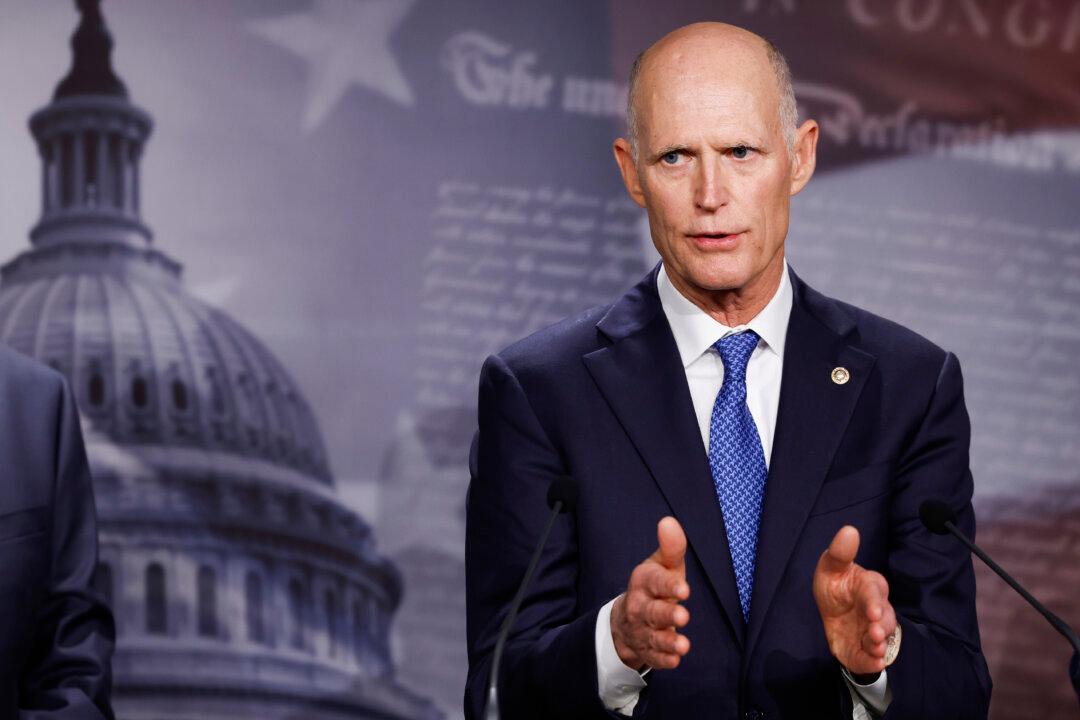Sens. Rick Scott (R-Fla.), Ted Budd (R-N.C.), and Mike Braun (R-Ind.) introduced legislation on Jan. 11 that calls for increased transparency from the federal government regarding funds flowing to companies in China.
The bill, titled “Our Money in China Transparency Act,” requires the Office of Management and Budget and other agencies to submit annual, detailed reports regarding taxpayers’ money spent on any federal program, project, or activity related to institutions or entities associated with the Chinese regime.




